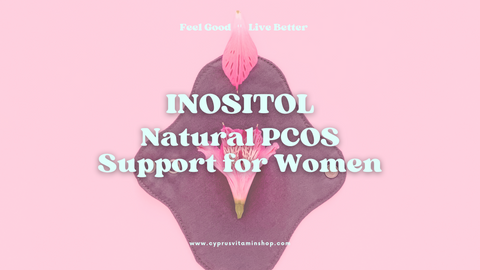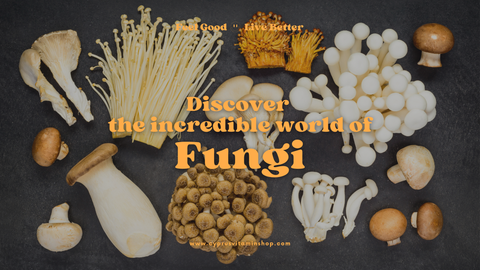Inositol: A Natural Helper for Women with PCOS
Polycystic Ovary Syndrome (PCOS) is a common condition that affects hormones, periods, and sometimes fertility. Many women with PCOS also have insulin resistance — meaning their body doesn’t handle sugar as well as it should. This can make symptoms worse.
That’s where inositol comes in.
What is inositol?
Inositol is a type of natural compound (kind of like a vitamin) found in fruits, beans, nuts, and grains. Your body also makes it on its own. Two forms are especially important for PCOS:
-
Myo-inositol (MI)
-
D-chiro-inositol (DCI)
Together, they help cells use insulin and balance hormones.
How can inositol support PCOS?
1. Improves insulin sensitivity
Inositol helps the body use insulin better. Lower insulin can reduce sugar spikes and help with weight and energy levels.
2. Balances hormones
High insulin can push the ovaries to make too much testosterone. Inositol may lower insulin and, in turn, reduce acne, excess hair, and other hormone-related symptoms.
3. Supports regular periods and fertility
Studies show women taking inositol often have more regular cycles and improved ovulation. Some fertility doctors also use it to improve egg quality before IVF.
4. May improve cholesterol and metabolism
Some research suggests inositol can also improve cholesterol and triglyceride levels, which are often higher in PCOS.
How is it taken?
-
Most studies use 4 grams of myo-inositol per day, often split into two doses.
-
Some supplements combine MI and DCI in a 40:1 ratio, which seems to match what healthy women naturally have.
-
It’s generally safe and well tolerated, with only mild side effects like stomach upset in some people.
Inositol is not a cure for PCOS, but it’s a safe and natural option that may help with insulin resistance, hormone balance, cycles, and fertility. It works best when combined with lifestyle changes (healthy eating, exercise, stress management) and medical care when needed.
Sources
-
Unfer V, et al. “Inositols: From physiology to rational therapy in gynecology and obstetrics.” International Journal of Endocrinology (2016). PMC7140126
-
Facchinetti F, et al. “Experts’ opinion on inositols in treating PCOS.” Gynecological Endocrinology (2023). Taylor & Francis
-
Nestler JE, et al. “Insulin-sensitizing effects of inositol in women with PCOS.” Journal of Clinical Endocrinology & Metabolism (2024). Oxford Academic
-
De Leo V, et al. “Myo-inositol and D-chiro-inositol in PCOS: A meta-analysis.” Reproductive Health (2021). BioMed Central
-
Genazzani AD, et al. “Inositols and PCOS: clinical evidence.” Frontiers in Endocrinology (2023). PMC9878965



